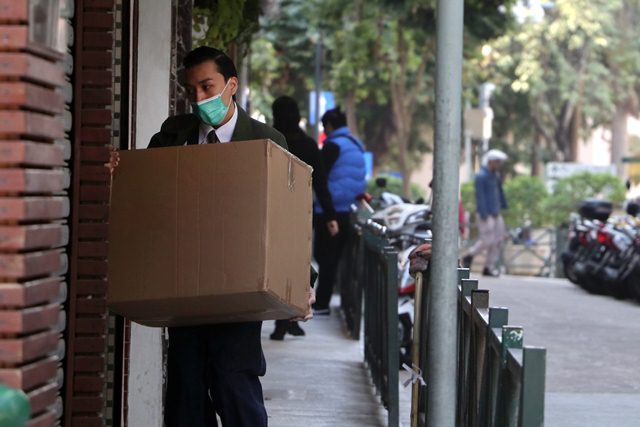The slowdown of manufacturing in China due to the coronavirus (COVID-19) outbreak is disrupting world trade and could result in a US$50 billion decrease in exports across global value chains, according to estimates published by the United Nations Conference on Trade and Development (UNCTAD).
In February, the country’s manufacturing Purchasing Manager’s Index (PMI)—a critical production index—fell by about 22 points to 37.5, the lowest reading since 2004. Such a drop in output implies a 2% reduction in exports on an annual basis, according to the UNCTAD report released March 4.
Because China has become the central manufacturing hub of many global business operations, a slowdown in Chinese production has repercussions for any given country depending on how reliant its industries are on Chinese suppliers.
“In addition to grave threats to human life, the coronavirus outbreak carries serious risks for the global economy,” UNCTAD Secretary-General Mukhisa Kituyi said.
“Any slowdown in manufacturing in one part of the world will have a ripple effect in economic activity across the globe because of regional and global value chains,” he said.
“The 2% contraction in China’s output has ripple effects through the global economy and thus far has caused an estimated drop of about US$50 billion across countries,” the report said.
The most affected sectors include precision instruments, machinery, automotive and communication equipment.
Even if the outbreak of COVID-19 is contained mostly within China, the fact that Chinese suppliers are critical for many companies around the world implies that any disruption in China will be also felt outside the country’s borders, impacting European, American and East Asian regional value chains.
For example, some European auto manufacturers may face the shortage of critical components for their operations, companies in Japan may find difficult to obtain parts necessary for the assembly of digital cameras, and so on. For many companies, the limited use of inventories brought by a lean and just-in-time manufacturing process would result in shortages that will impact their production capabilities and overall exports.
UNCTAD also released a list of the top 20 most affected economies. The top six are the European Union ($15.6 billion), the United States ($5.8 billion), Japan ($5.2 billion), The Republic of Korea ($3.8 billion), Taiwan ($2.6 billion) and Vietnam ($2.3 billion).
In Asia, others on list include Singapore ($2.2 billion), Malaysia ($1.1 billion), Thailand ($733 million), India ($348 million), Hong Kong ($332 million), Indonesia ($312 million), Philippines ($300 million), Bangladesh ($16 million), and Cambodia ($10 million).
The estimated global effects of COVID-19 are subject to change depending on the containment of the virus and or changes in the sources of supply, the report said.
Photo by Macau Photo Agency on Unsplash









